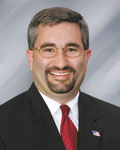December 5, 2011
Finding An Estate Planning Attorney
 By Curt Ford
By Curt Ford
Nash Nash Bean & Ford
Cynthia had planned for her future. She saved for retirement, she bought long-term care insurance and worked with her attorney to draft an estate plan. Even after her plan was completed, she made sure she knew where her health-care
documents were located and had compiled a list of important documents including her will, her insurance policies and bank accounts. She thought she had planned for any event.
And she had, except for one: the retirement of her estate planning attorney. After years of working with her attorney and the staff, Cynthia felt comfortable with the firm, their services and her plan. So, when she received early notice of his impending retirement, she was unsure how to proceed.
Fortunately for Cynthia, her estate planning attorney offered these tips for finding an attorney before her plan
needed updating:
• Gather recommendations from friends or family. Get specific: What does your sister like best about her firm? The preciseness of the documents? The speed of document
preparation? The kindness of the staff? Knowing why someone likes a firm can guide your selection.
• Ask professionals such as your financial planner or accountant. They frequently work with attorneys and may have recommendations.
• Check legal websites for reviews and ratings.
• Contact your state or local bar association for licenses, listings and information.
Once you have a few recommendations, talk to each attorney. Most attorneys will offer a 30 to 60 minute consultation to help you understand them and their practice. During your consult, try to discover:
• How much of the practice is focused on estate planning? As with most areas of law, estate planning requires specific
language and the laws change frequently.
• How much continuing education he receives in the area of estate planning? Most states require a minimum of CE
credits; specialty organizations may require more. For example, the American Academy of Estate Planning Attorneys requires 36 hours of continuing education annually.
• How is the fee schedule structured? Is there a flat fee or an hourly rate? What is included in each?
• How comfortable do you feel with the attorney and the staff? An estate plan is a long-range plan; make sure you have a
comfort level with the attorney you choose.
Like any professional relationship, you may face a change with your estate planning attorney. However, with thought and preparation, you can smoothly transition to a new association.
Nash Nash Bean & Ford, LLP are members of the American Academy of Estate Planning Attorneys and the National Academy of Elder Law Attorneys. To receive a copy of our most recent newsletters, “Your Estate Matters,” or for a free consultation on Estate or Long Term Care planning, call (309) 944-2188, (309) 762-9368 or 1-800-644-5345. You may also contact our firm by email at info@nashbeanford.com or visit our website at nashbeanford.com.
The firm devotes its practice primarily in the areas of estate, business and tax planning and related areas of the law as well as elder law and trust administration and probate. We offer guidance and advice to our clients in every area of estate planning.
This column is designed for general information purposes only and is not intended, nor should be construed or relied upon, as legal advice. Please consult your attorney if specific legal information is desired.
Filed Under: Finance, Retirement
Tags: Accountant, American Academy, Amp, Areas Of Law, Attorneys, Bank Accounts, Continuing Education, Document Preparation, Financial Planner, Impending Retirement, Insurance Policies, Kindness, Legal Websites, Local Bar Association, Long Term Care, Long Term Care Insurance, Minute Consultation, Nash, Retirement Planning, Term Care Insurance
Trackback URL: https://www.50pluslife.com/2011/12/05/finding-an-estate-planning-attorney/trackback/


